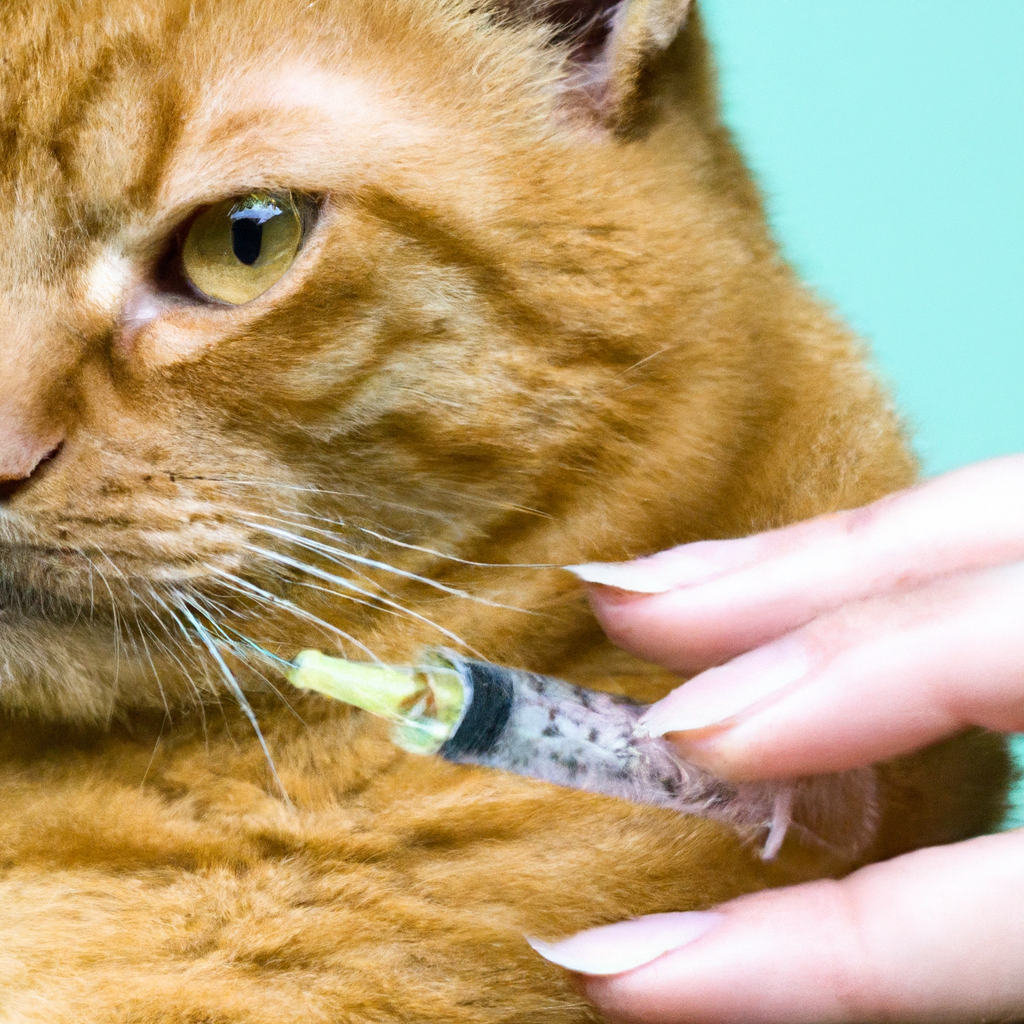Did you know that even though your cat may be living a cozy life indoors, they still need regular vaccinations? Many cat owners assume that because their feline friend is not exposed to the outdoors, they are safe from contracting diseases. However, indoor cats can still be at risk, especially if they come into contact with other animals or if there are visitors in your home. In this article, we will explore the importance of vaccinations for indoor cats and why they should still receive their shots to ensure a long and healthy life.
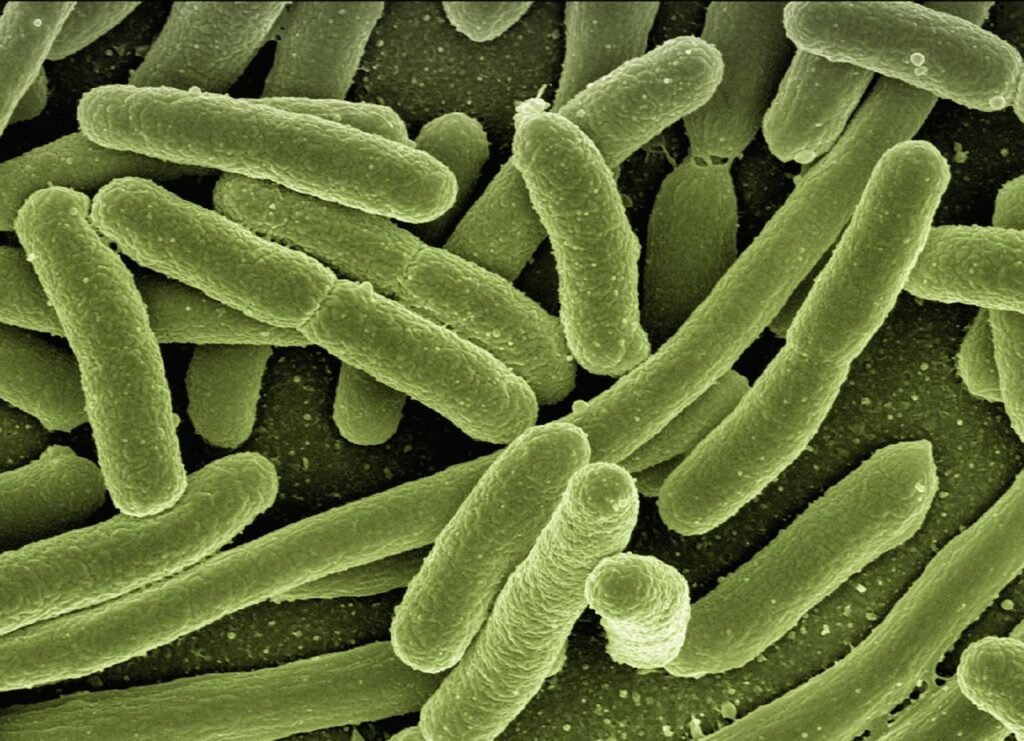

This image is property of pixabay.com.
Why Do Indoor Cats Need Shots?
Understanding the Importance of Vaccinations
As a responsible cat owner, it is important to understand why indoor cats still need vaccinations. While indoor cats may have a lower risk of exposure to certain diseases compared to outdoor cats, they are not completely immune. Vaccinations are necessary to protect your furry friend from potentially serious and even life-threatening illnesses.
Preventing the Spread of Diseases
Even though indoor cats may not come into direct contact with other animals, they can still be exposed to diseases through various means. For instance, you or other family members may inadvertently bring infectious agents into your home on your clothes or shoes. Additionally, insects like fleas or ticks can find their way indoors, potentially transmitting diseases to your cat. By ensuring that your indoor cat is up-to-date on vaccinations, you can help prevent the spread of diseases.
Protecting the Cat’s Health
Vaccinations play a crucial role in protecting the health of your indoor cat. They stimulate the cat’s immune system to recognize and fight off specific diseases. Through vaccination, your cat becomes better equipped to defend itself against potential pathogens. This can lead to a stronger overall immune response, reducing the severity of any illness your cat may be exposed to.
Complying with Legal Requirements
In some regions, there may be legal requirements for cat vaccinations. Local authorities may mandate certain vaccines, such as rabies vaccinations, to prevent the spread of diseases between animals and humans. Failing to comply with these legal requirements can result in penalties or restrictions on pet ownership. By keeping your indoor cat’s vaccinations up to date, you not only protect their health but also comply with any legal obligations.
Common Vaccinations for Indoor Cats
Rabies
Rabies is a deadly viral disease that can affect both cats and humans. Even though indoor cats may not have direct exposure to rabid animals, they can still come into contact with infected bats or other animals that have entered their environment. Rabies vaccinations are typically required by law and are crucial for both the health of your cat and the safety of your household.
Feline Distemper (Panleukopenia)
Feline distemper, also known as panleukopenia, is a highly contagious viral disease that can lead to severe illness or even death, especially in kittens. The virus can survive in the environment for an extended period, increasing the risk of transmission. Indoor cats can still be exposed to the virus through contaminated objects or through contact with infected cats if they accidentally escape outdoors.
Feline Calicivirus
Feline calicivirus is a respiratory disease that can cause symptoms such as fever, sneezing, and ulcers in the mouth. While indoor cats may be less prone to exposure to this virus compared to outdoor cats, the potential for transmission still exists. Contaminated objects or exposure to other cats during visits to the veterinarian or boarding facilities can introduce the virus to your indoor cat. Vaccination helps reduce the severity and duration of the disease if your cat does become infected.
Feline Herpesvirus (FHV-1)
Feline herpesvirus, also known as FHV-1, is a widespread respiratory infection among cats. The virus can be easily transmitted through airborne particles or direct contact with an infected cat. Even though indoor cats may have limited exposure, the virus can be brought into the home by humans or on objects. Vaccination against FHV-1 is crucial to minimize the risk of infection and to manage the symptoms if your cat becomes infected.
Feline Leukemia Virus (FeLV)
Feline leukemia virus is a contagious viral infection that can suppress the immune system and lead to various health problems, including cancer. Indoor cats may still be at risk if they come into contact with infected cats during visits to the veterinarian or boarding facilities or if they accidentally escape outdoors and encounter infected cats. Vaccination is an important preventive measure to protect your indoor cat’s health and prevent the spread of the virus.
Bordetella
Bordetella bronchiseptica is a bacterium that can cause respiratory infections in cats, commonly known as kennel cough. While it is more prevalent in outdoor or multi-animal environments, indoor cats can still be exposed to the bacteria through visits to the veterinarian or interactions with other animals. Vaccination against Bordetella can help reduce the risk of respiratory infections and their associated complications.
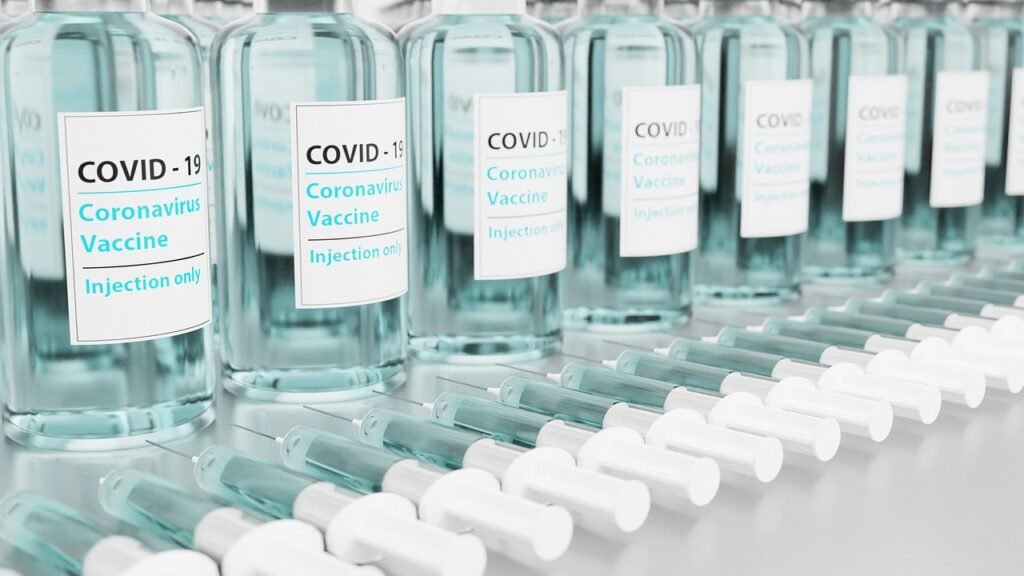

This image is property of pixabay.com.
Vaccination Schedule for Indoor Cats
Kitten Vaccinations
Kittens require a series of vaccinations to provide them with the necessary protection against various diseases. Typically, vaccinations begin at around 6 to 8 weeks of age, and booster shots are administered every 3 to 4 weeks until they are around 16 weeks old. The exact schedule may vary depending on the vaccines used and your veterinarian’s recommendations. It is important to follow the recommended vaccination schedule to ensure full protection for your kitten.
Adult Cat Vaccinations
Once your cat reaches adulthood, regular vaccinations are still necessary to maintain immunity against diseases. Adult cats generally receive booster shots every 1 to 3 years, depending on the vaccine and the individual cat’s health status and lifestyle. Your veterinarian will advise you on the proper schedule for your cat, taking into account factors such as regional disease prevalence and your cat’s specific needs.
Booster Shots
Booster shots are essential to reinforce your cat’s immunity against diseases. These additional vaccinations are given at regular intervals to maintain the cat’s immunity levels. Booster shots not only help to prevent the resurgence of diseases but also contribute to the overall health and well-being of your cat. It is important to follow the recommended booster shot schedule provided by your veterinarian to ensure maximum protection for your indoor cat.
Factors to Consider for Indoor Cats
Exposure to Outdoor Cats
Although your indoor cat may not have direct contact with outdoor cats, there may be cases where exposure is still possible. If you have a screened-in porch or if your indoor cat occasionally escapes outdoors, the risk of encountering a potentially infected outdoor cat increases. Additionally, interactions with neighborhood cats through windows or during visits to the veterinarian can also pose a risk. Considering these potential exposures, vaccinations remain crucial for your indoor cat’s overall health.
Living in Multi-Animal Homes
If you live in a multi-animal household where other pets go outdoors or interact with outdoor animals, there is a higher risk of diseases being brought into your home. Other animals in your household can act as potential carriers of infectious agents, exposing your indoor cat to diseases. Vaccinating your indoor cat is an important step in reducing the risk of transmission within your home and protecting the overall health of all your pets.
Traveling or Boarding
There may be occasions when you need to travel with your indoor cat or board them at a facility. These situations can increase the risk of exposure to diseases. Boarding facilities, even those catering to indoor cats, can still serve as potential sources of infections if proper preventive measures are not in place. Ensuring that your cat’s vaccinations are up to date before traveling or boarding can provide an additional layer of protection against potential disease outbreaks.
Potential Risk Factors
While indoor cats may have a lower risk of exposure compared to outdoor cats, various factors can increase their vulnerability to diseases. For instance, if you frequently have visitors or if you live in an area with known disease outbreaks, the risk can be higher. Additionally, if your cat has existing health issues or a compromised immune system, vaccinations become even more important to safeguard their well-being.
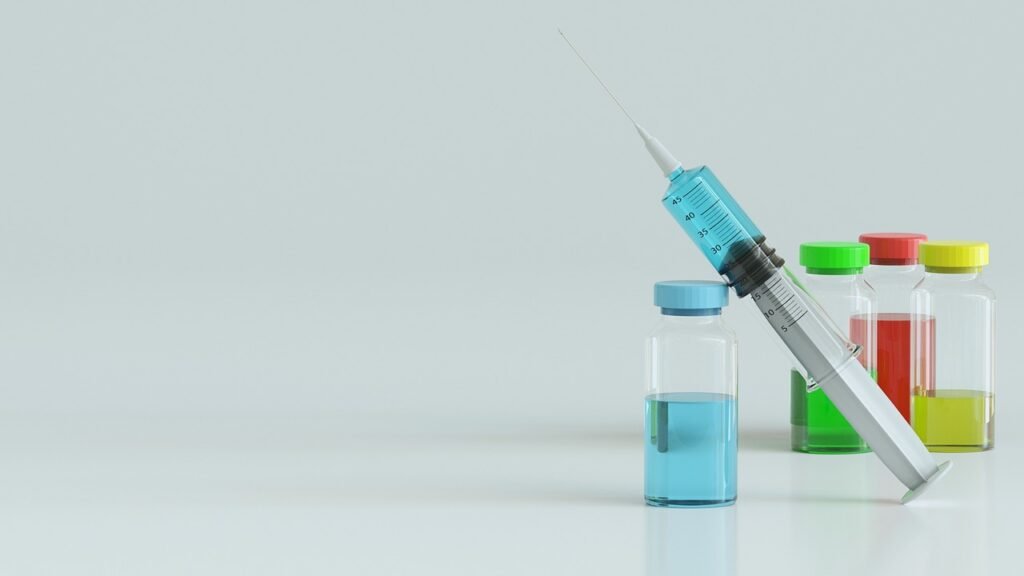

This image is property of pixabay.com.
Possible Side Effects of Vaccinations
Mild Reactions
Most cats tolerate vaccines well, experiencing only mild reactions, if any. These reactions may include temporary soreness at the injection site or a slight decrease in appetite. Mild reactions are usually short-lived and resolve on their own without any intervention. However, if you notice any persistent or concerning symptoms after vaccination, it is important to consult your veterinarian.
Allergic Reactions
Although rare, some cats may have an allergic reaction to certain vaccine components. Signs of an allergic reaction can include swelling, hives, difficulty breathing, or vomiting. If you observe any signs of a severe allergic reaction, such as difficulty breathing, seek immediate veterinary attention. It is important to notify your veterinarian of any previous reactions or allergies your cat has had before administering vaccinations.
Rare and Serious Side Effects
While extremely rare, there have been reports of more serious side effects associated with certain vaccines. These can include vaccine-associated sarcomas or immune-mediated disorders. Vaccine-associated sarcomas are a type of cancerous tumor that can develop at the injection site. Immune-mediated disorders involve the immune system attacking normal body tissues after vaccination. Although these side effects are very uncommon, it is important to be aware of the possibility and discuss any concerns with your veterinarian.
Consulting a Veterinarian
Discussing Your Cat’s Lifestyle
When it comes to vaccinations for your indoor cat, consulting with a veterinarian is essential. Your veterinarian will take into consideration your cat’s specific lifestyle factors, such as potential exposure to outdoor cats, interactions with other animals, and any travel plans. By discussing these factors, your veterinarian can recommend the most appropriate vaccinations to ensure your cat receives the necessary protection.
Understanding Regional Disease Prevalence
Disease prevalence can vary from region to region. Your veterinarian will have a good understanding of the diseases that are most common in your area and can tailor the vaccination recommendations accordingly. By considering the regional disease prevalence, you and your veterinarian can make informed decisions about which vaccines are necessary to protect your indoor cat.
Considering Individual Health Factors
Each cat is unique, and individual health factors should be taken into account when determining the appropriate vaccinations. If your cat has any pre-existing health conditions, allergies, or previous adverse reactions to vaccines, it is important to discuss these with your veterinarian. They can help assess the potential risks and benefits of vaccinations for your cat’s specific situation.
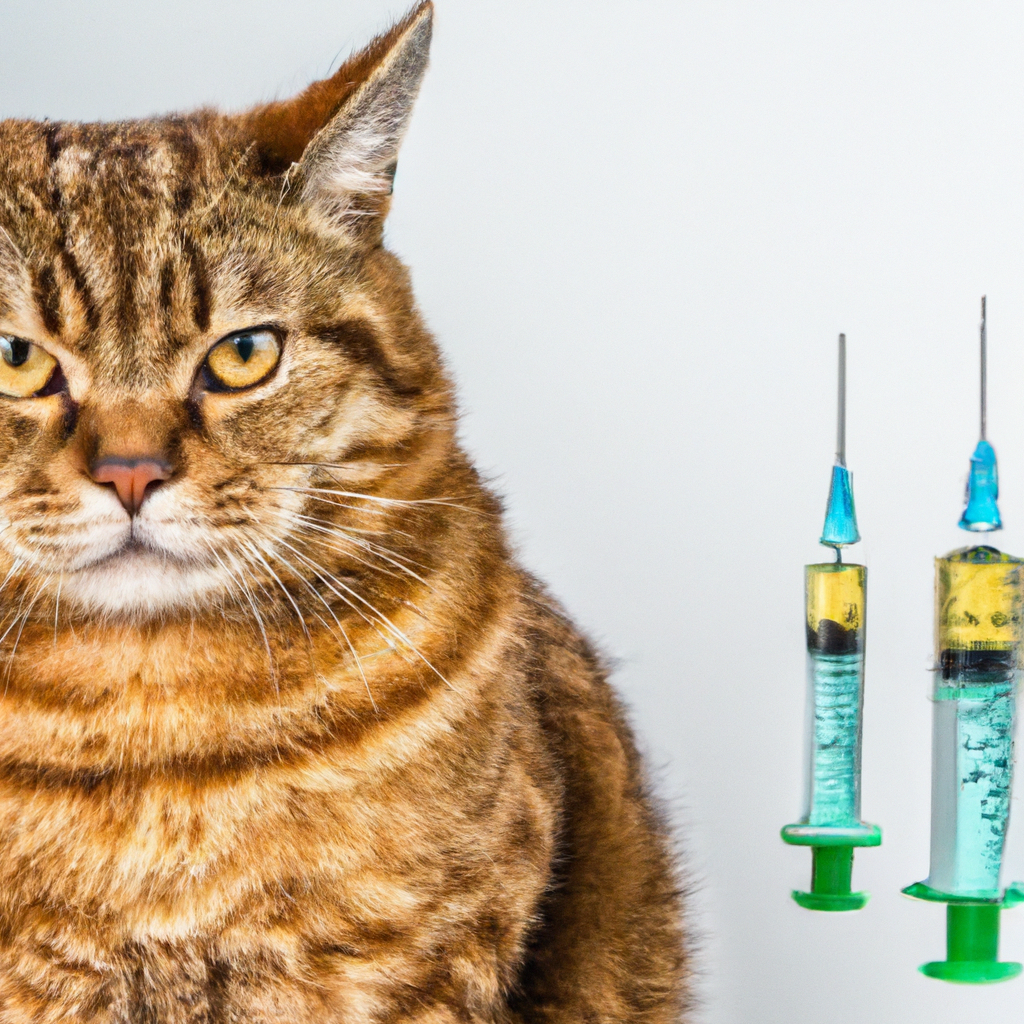

Cost and Accessibility of Vaccinations
Clinic or Veterinarian Fees
The cost of vaccinations for indoor cats can vary depending on the clinic or veterinarian you visit. The fees usually cover the cost of the vaccines, administration, and the vet’s expertise. It is important to budget for these expenses and to consider them as part of your overall pet care costs. Your veterinarian can provide you with an estimate of the costs involved, allowing you to plan accordingly.
Discounted or Low-Cost Options
If cost is a concern, there may be discounted or low-cost options available in your area. Some shelters, clinics, or animal welfare organizations offer vaccination clinics or programs to make vaccinations more accessible to pet owners. It is worth researching these options or reaching out to local organizations to inquire about any available discounted or low-cost vaccination services.
Pet Insurance Coverage
Pet insurance can be a valuable tool to help manage veterinary expenses, including vaccinations. Depending on the policy you have, vaccinations may be covered, reducing the financial burden. It is important to review the terms and coverage of your pet insurance policy to understand which vaccinations are included and any limitations or restrictions that may apply.
Alternative Preventive Measures
Indoor Environmental Enrichment
Creating a stimulating and enriching indoor environment for your cat can help improve their overall well-being and reduce the risk of behavioral issues. Providing plenty of toys, scratching posts, and vertical spaces can help keep your cat mentally and physically stimulated while indoors. Environmental enrichment can help prevent boredom and stress, which can contribute to certain health problems.
Regular Vet Check-ups
Regular veterinary check-ups are essential for the ongoing health and well-being of your indoor cat, even if they seem perfectly healthy. During these check-ups, your veterinarian can assess your cat’s overall health, monitor for any signs of illness, and ensure that their vaccinations are up to date. Regular check-ups allow for early detection and intervention, potentially saving your cat from more serious health issues.
Proper Nutrition and Hygiene
Ensuring that your indoor cat receives a balanced and nutritious diet is important for their overall health and well-being. A high-quality diet tailored to their specific needs can help support their immune system, reducing the likelihood of illness. Additionally, maintaining good hygiene practices, such as regular grooming and keeping their litter box clean, can help minimize the risk of infections and contribute to your cat’s overall health.
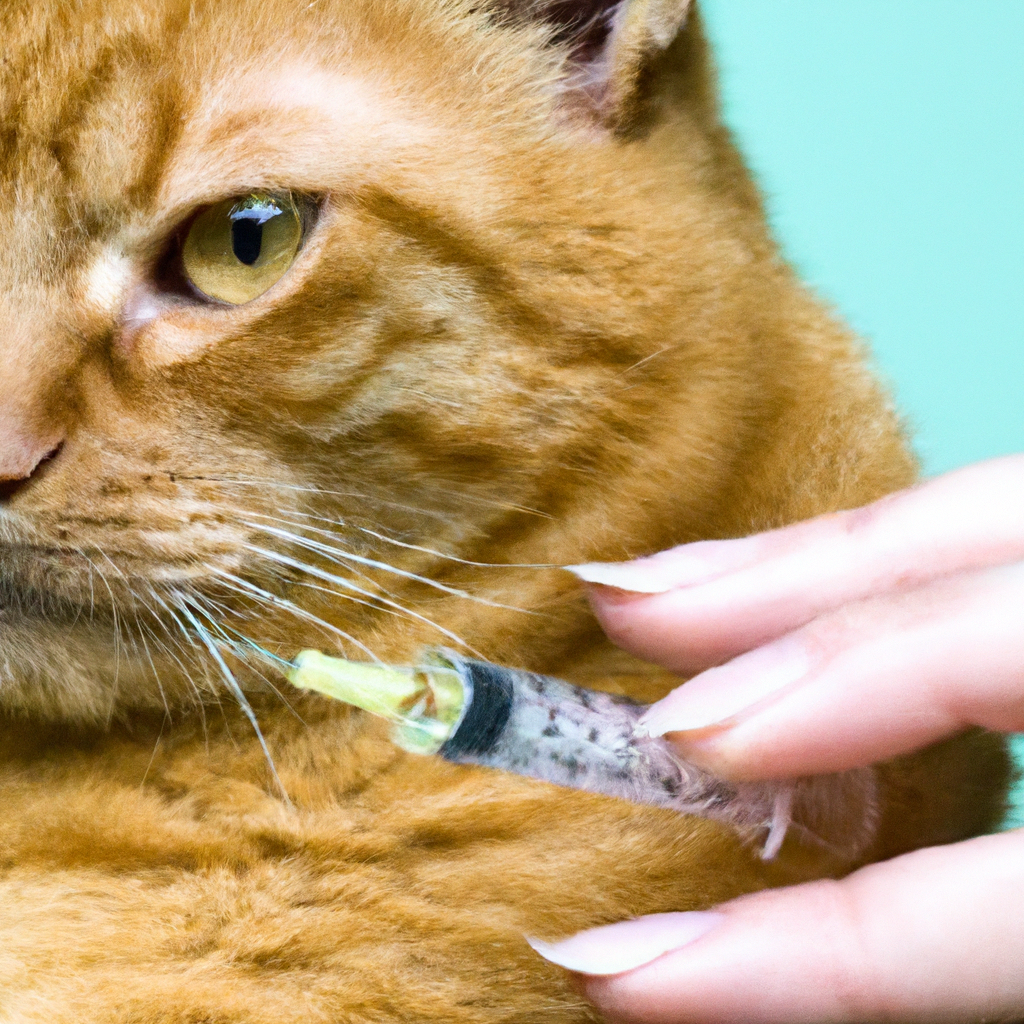

Risks of Not Vaccinating Indoor Cats
Exposing Other Pets and Humans
By not vaccinating your indoor cat, you not only put their health at risk but also jeopardize the health of other pets and humans in your household. If your indoor cat becomes infected with a disease, they can potentially transmit it to other animals or even to you and your family members. Vaccinating your indoor cat helps protect the entire household from the spread of preventable diseases.
Emerging Disease Outbreaks
Emerging diseases, such as new strains of viruses or bacteria, can pose a threat to cats. While the risk may be lower for indoor cats, these emerging diseases can quickly spread and become a significant concern. By keeping your indoor cat’s vaccinations up to date, you provide them with the best chance of protection against new or evolving diseases.
Limited Options for Future Needs
Not vaccinating your indoor cat can limit your options for future needs. If circumstances change and your cat needs to be boarded, travel with you, or spend time outside, they may be at risk of contracting diseases if they are not vaccinated. Maintaining regular vaccinations for your indoor cat ensures that they can adapt to any changes in their environment without compromising their health or safety.
Conclusion
Vaccinating your indoor cat is essential for their overall health and well-being. While they may have a lower risk of exposure to certain diseases compared to outdoor cats, they are not completely immune. Vaccinations provide an important layer of protection and help prevent the spread of diseases within your household. By working closely with your veterinarian and following the recommended vaccination schedule, you can ensure that your indoor cat remains happy and healthy, now and in the future.

